Alternative names: BCC, rodent ulcer, non-melanoma skin cancer
The incidence of all types of skin cancer has increased dramatically over the last few decades. At the Harley Street Dermatology Clinic, we are experts in diagnosing and treating cancer. Whether it be treated by topical therapy, radiotherapy or plastic surgery, you can rest assured that our consultants will provide you with the best possible care. Please see before and after images below of basal cell carcinoma treated surgically.
REQUEST A CALL BACK
Arrange a consultation with one of our expert dermatologists today.
WHAT IS BASAL CELL CARCINOMA?
Basal cell carcinoma is the commonest form of skin cancer accounting for around 85% of skin cancer in the UK. It is a slow-growing malignant tumour arising from the epidermis at the skin surface. Pleasingly, BCC has a very low rate of growth and is highly unlikely to spread to other areas, rendering it relatively harmless.
If left, most basal cell carcinomas will continue to grow slowly over time causing cosmetic disfigurement. The infiltrative variants are more likely to involve other tissue and structures but this tends to occur only if treatment of the BCC is neglected for some time. Spread to lymph nodes and internally is rare.
WHAT DOES BASAL CELL CARCINOMA LOOK LIKE?
There are several variants of basal cell carcinoma, all of which tend to occur in areas of sun exposure:
- Superficial BCCs appear as a scaly plaque and might resemble psoriasis or eczema.
- Nodular BCCs appear as a slightly shiny or translucent nodule which may ulcerate centrally and have blood vessels visible on their surface
- Infiltrative (or morphoeic) BCC are less well defined plaques and can be difficult to identify
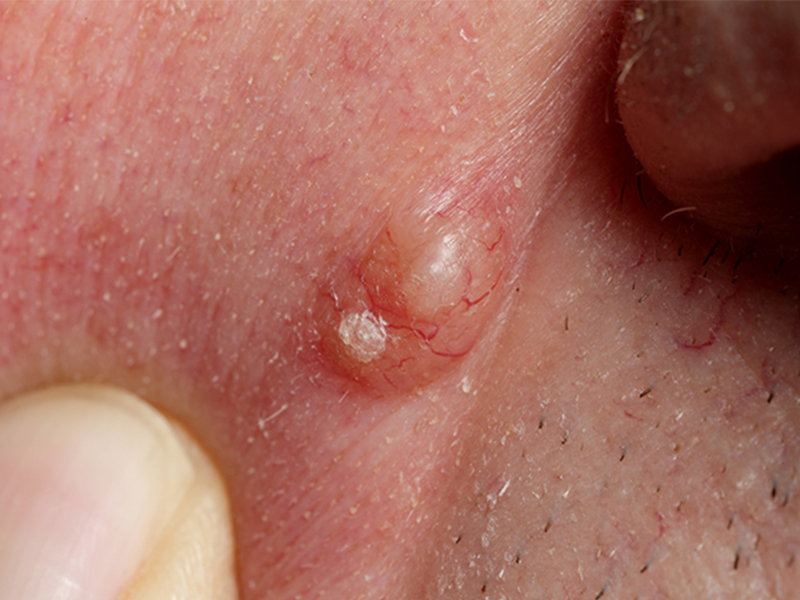
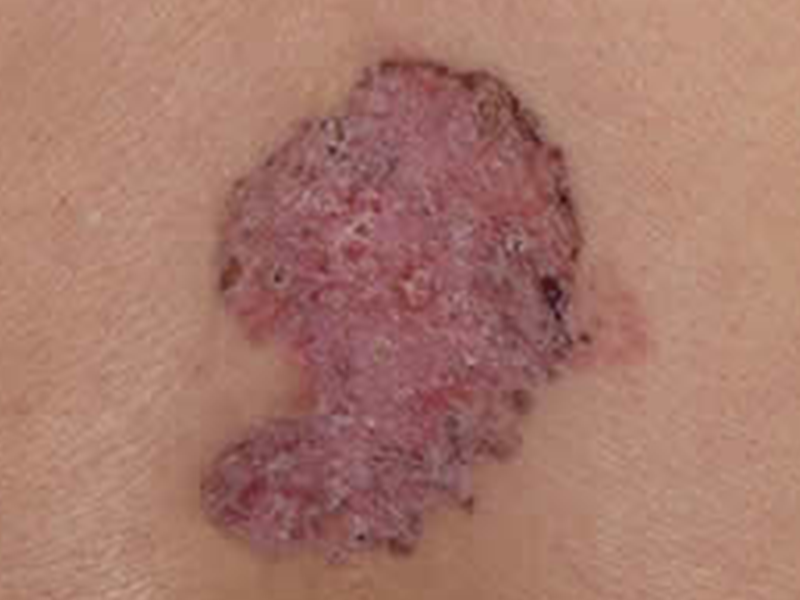
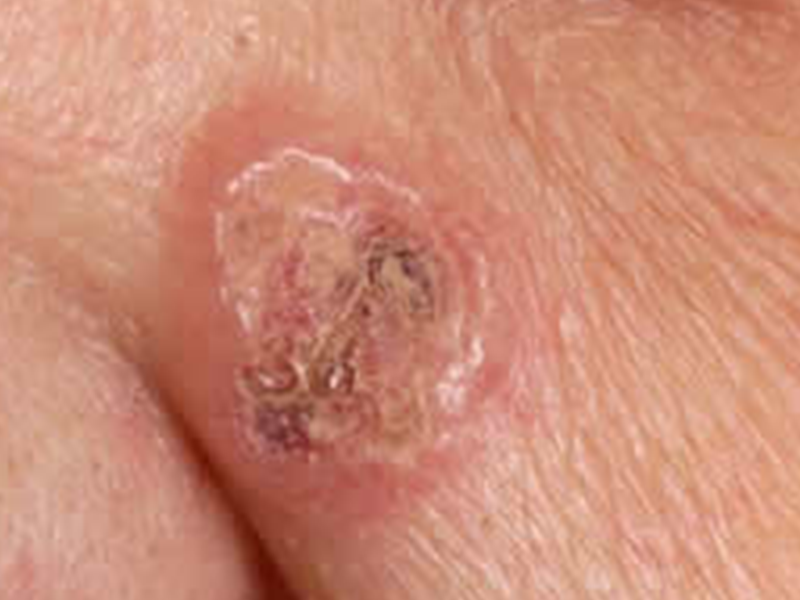
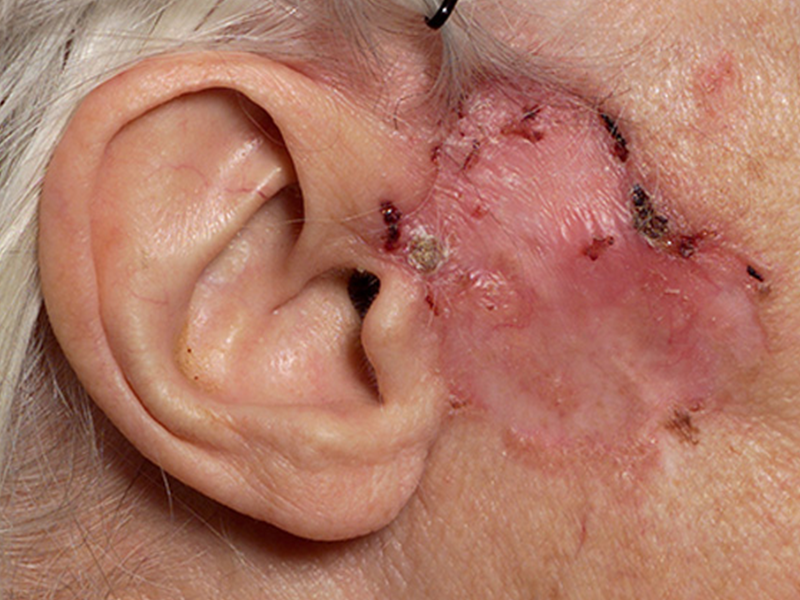
HOW IS BASAL CELL CARCINOMA TREATED?
Superficial basal cell carcinomas can be treated readily with freezing spray, creams or photodynamic therapy. Nodular and infiltrative BCCs are treated by either surgical excision or radiotherapy.
Our consultants at the Harley Street Dermatology Clinic offer diagnosis and treatment to patients with basal cell carcinoma.
Remember that the earlier your basal cell carcinoma is diagnosed and treated,
the less the cosmetic disfigurement and the less chance of recurrence or spread.
For more information on basal cell carcinoma, please see the British Association of Dermatologists website BCC advice leaflet.
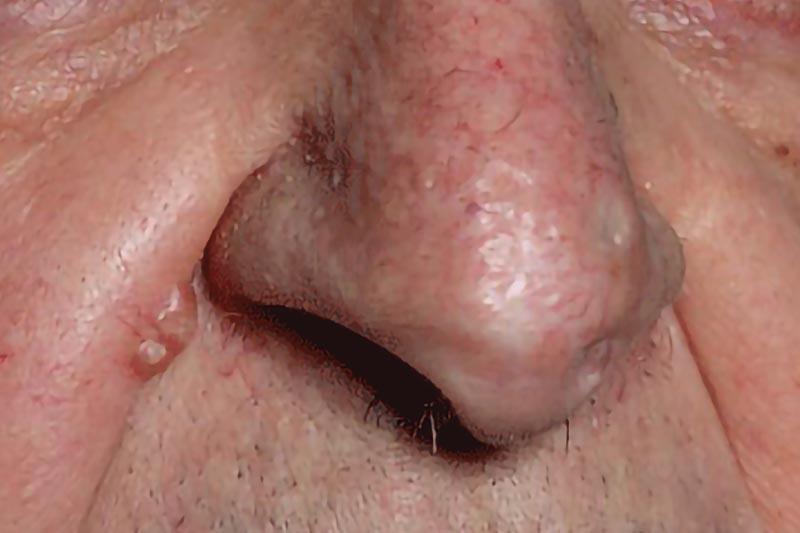
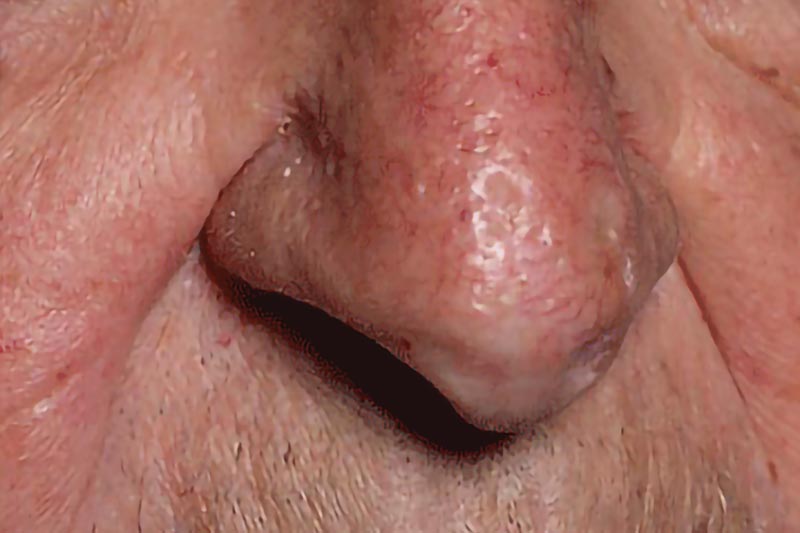
Remember, the earlier your skin cancer is diagnosed and treated, the less likely it is to leave you with scarring.
FREQUENTLY ASKED QUESTIONS
Am I likely to get BCC again after it has been removed?
If you’ve had a BCC in the past, there’s a chance the condition may return.
The chance of non-melanoma skin cancer returning is increased if your previous cancer was large in size and high grade (severe). It’s also important to be aware that if you’ve had a BCC, your risk of developing another one in the future is increased because these cancers are often multiple. This means it’s important to regularly examine your skin to check for new tumours.
How can I prevent skin cancer?
Protecting your skin is, of course, always the best course of action. The easiest ways you can do this include:
· Wearing a waterproof, high level of SPF protection when in the sun
· Use a daily moisturiser with SPF protection
· Avoid the sun when it is at its strongest during the day
· Wear a hat when in the sun
· Sit in the shade
How dangerous are basal cell carcinomas?
BCC’s rarely spread beyond their original tumour site, however if left to grow they can be disfiguring, grow wide and deep into the skin and destroy skin, tissue and bone.
Can basal cell carcinoma turn into another form of skin cancer, such as melanoma?
No, each skin cancer is separate and distinct and basal cell carcinoma does not progress into melanoma skin cancer.
WHY CHOOSE THE HARLEY STREET DERMATOLGY CLINIC?
Having the right dermatologist is important especially when you have a chronic skin condition that will require ongoing treatment. We want you to feel confident that we’re providing you with the best possible care. We also want you to feel as comfortable as possible with your dermatologist.
The Harley Street Dermatology Clinic specialises in conditions affecting the skin, hair and nails. Our goal is to provide all the care that you need when you’re experiencing these kinds of problems. We want to make it easy for you to access the best quality treatment and support in London.
The clinic is conveniently located in Central London, so it’s easy to visit us if you need to see a dermatologist. You will find yourself in a very comfortable and welcoming environment. We have created a relaxing space where you will receive the highest quality of care. We are regulated by the Care Quality Commission, are part of the British Association of Dermatologists and are top rated by patients of Doctify so you can be sure of safe and effective treatment with us.
CONTACT US
Finding Us
The Harley Street Dermatology Clinic
35 Devonshire Place
London
W1G 6JP
The clinic can be accessed by public transport, on foot or by car. There is paid on street parking around the Harley Street district. The nearest tube stations are Regent’s Park and Baker Street, and Marylebone train station is a 15 minute walk away.
Contact Details
Opening Hours
While appointments can be made available outside usual hours in special circumstances, our core hours are:
Monday: 8am - 6pm
Tuesday: 8am - 6pm
Wednesday: 8am - 6pm
Thursday: 8am - 6pm
Friday: 8am - 6pm
Saturday : 10am - 2pm
Sunday: Closed
REQUEST A CALL BACK
Please fill in this form and one of our team will give you a call back to arrange a consultation with one of our expert dermatologists.
